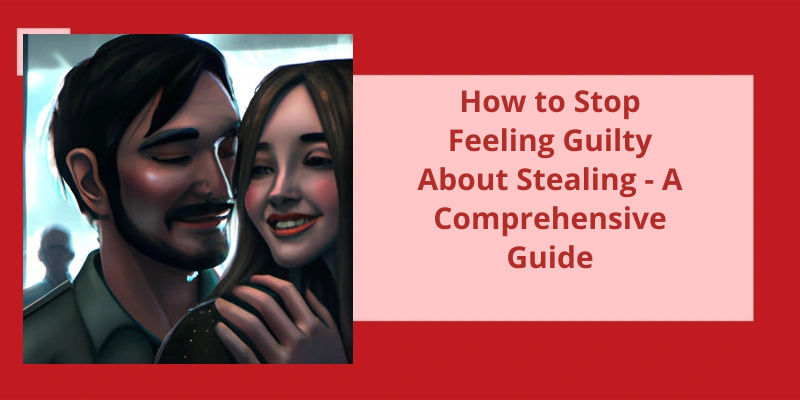In the realm of magic and illusion, where deception and misdirection are the names of the game, the accusation of wrongdoing can send shockwaves through even the most skilled and innocent performer. The world of magic is built on suspending belief and captivating audiences with impossible feats, but when an innocent person finds themselves accused of tampering with the very fabric of reality, the reaction is bound to be one of disbelief, confusion, and an unwavering determination to prove their innocence. The art of magic relies on meticulous planning, practice, and precision, making accusations all the more devastating to those who’ve dedicated their lives to perfecting their craft. As the accusation shakes their foundation, an innocent magician must navigate the treacherous waters of doubt, suspicion, and potentially tarnished reputations, all the while summoning their inner strength and resilience to emerge unscathed and restore their good name. The road ahead may be arduous, filled with intricate illusions and challenging obstacles, but a true magician understands that the power lies not only in their tricks, but in their ability to overcome adversity and prove their innocence in the face of an unfounded accusation.
How Does an Innocent Person Act When Falsely Accused?
Furthermore, an innocent person may also experience a wide range of emotions when falsely accused, such as shock, disbelief, anger, and sadness. They may struggle to understand why they’re being accused and find it difficult to comprehend the injustice of the situation. These intense emotions can affect their behavior, causing them to become somewhat withdrawn or appear emotionally unsettled.
In their efforts to prove their innocence, an innocent person may also display a strong desire to cooperate with authorities. They may willingly provide any requested information, offer to take polygraph tests, or provide alibis and witnesses to support their claim. They may also seek legal representation promptly, believing that the truth will ultimately prevail if they’ve proper legal counsel.
Additionally, an innocent person may experience a profound sense of betrayal and disillusionment towards the justice system. They may question how such a grave accusation can be levelled against them without concrete evidence, and their faith in the fairness and integrity of the system may be shaken. This can lead to a feeling of isolation and mistrust, as they struggle to comprehend how they ended up in such a situation.
It’s essential to recognize that anger in response to accusations is a complex emotion fueled by various factors, including feelings of defensiveness, fear, and distrust. Understanding these underlying dynamics can shed light on why people find it challenging to remain calm when facing false accusations.
Why Do People Get Angry When They Are Accused?
When someone is accused of something they didn’t do, it can be a deeply distressing and frustrating experience. The accused may feel a range of emotions, including anger and disbelief. Being falsely accused can shatter ones sense of trust and security, as they may wonder how such a misunderstanding or fabrication could occur.
For many people, their reputation is highly important. When they’re unjustly accused, they may fear that their good name and standing in the community will be tarnished. The accusation, even if proven false, may still leave a lingering doubt in the minds of others. This fear of damage to ones reputation can cause anger as a way of protecting oneself.
Moreover, an innocent person being accused may also feel a sense of powerlessness and frustration. They may struggle to understand why they’re being targeted and may feel like they’ve no control over the situation. This can lead to anger as they try to regain a sense of agency and assert their innocence.
Strategies for Defending Against False Accusations
- Preserving evidence of innocence
- Gathering witness testimonies
- Documenting and recording all interactions
- Hiring a skilled defense attorney
- Researching and understanding the laws and legal processes
- Maintaining open communication with the attorney
- Building a strong alibi and providing evidence
- Examining the credibility of the accuser
- Investigating any potential motives behind the false accusation
- Seeking character references
- Cooperating fully with law enforcement
- Preparing for the legal process
- Presenting a solid defense
- Securing expert witnesses if necessary
- Protecting personal reputation and image
Source: If someone gets angry over an accusation does that usually …
When faced with accusations, individuals often experience a mixture of emotions and exhibit various responses. From initial surprise and disbelief to denial, anger, frustration, and a drive to prove their innocence, people display a range of reactions. Alongside these, many also display a genuine willingness to cooperate with any investigations that may arise from the accusations.
How Do You React When Being Accused?
When falsely accused, an innocent person may initially experience a surge of surprise and disbelief. It’s natural for them to be caught off guard by the accusation, as they may have had no reason to expect it. As the shock subsides, the innocent individual might find themselves overwhelmed by an intense desire to disprove the accusation and clear their name.
Denial often emerges as a common reaction. It’s human instinct to reject claims that are perceived as untrue. An innocent person may vehemently deny the accusation, emphasizing their lack of involvement or knowledge about the alleged act. Denial, however, may be coupled with feelings of frustration and helplessness.
Anger is a powerful emotion that can also arise in the face of false accusations. The accused individual may become angry at the person or circumstances that led to the accusation. This anger can stem from a sense of injustice, as they feel deeply wronged by the situation. Nevertheless, it’s crucial for the innocent person to channel their anger constructively, as it can easily cloud their judgment and hinder their ability to navigate the accusations effectively.
Instead of allowing anger to consume them, innocent individuals are often driven by an intrinsic motivation to prove their innocence. This determination fuels their search for evidence or witnesses that can substantiate their claims. They may engage in research, enlist the support of others, or explore any available means to gather evidence that could exonerate them.
Cooperation with any efforts to investigate the situation is another common reaction of an innocent person accused of a crime they didn’t commit. They may willingly participate in interrogations, provide alibis, or offer any possible assistance to law enforcement or relevant authorities. By cooperating fully, they hope to speed up the investigation process and bring about a resolution that absolves them of guilt.
To summarize, when wrongly accused, the innocent person goes through a range of emotions including surprise, disbelief, denial, anger, and frustration. Their primary focus becomes disproving the accusation and re-establishing their innocence. By channeling their emotions constructively, they embark on a personal quest to gather evidence and cooperate with authorities in order to clear their name.
The Potential Psychological and Emotional Impact of Being Falsely Accused
Being falsely accused can have a powerful psychological and emotional impact on an innocent person. The experience can be highly distressing and traumatic, stirring up a range of intense emotions. Initially, there may be shock and disbelief at the accusation, especially if it comes from someone the person trusts or holds in high regard.
As the accusation sinks in, feelings of confusion, fear, and anger are likely to emerge. The innocent person may struggle to understand why they’re being accused and the motivations behind it. There might be a sense of helplessness and vulnerability as they realize that their reputation, relationships, and even their freedom could be at stake.
Innocent individuals may experience profound emotional distress, including anxiety, sadness, and even depression. They may feel overwhelmed by a sense of injustice and frustration at not being able to prove their innocence immediately. The accusation can undermine their self-esteem and confidence, leaving them questioning their own character and integrity.
The psychological impact may extend beyond the immediate emotional response. The innocent person may face social stigma and judgment from others who believe the accusations without question, leading to isolation and a breakdown in social support networks. Trust in interpersonal relationships can be damaged, as suspicions and doubts may arise in other areas of life.
Coping with false accusations can be an arduous and uphill battle. The innocent person may need to rely on legal assistance to clear their name, which can involve long and stressful legal processes. Seeking emotional support from friends, family, or mental health professionals can also be immensely beneficial in navigating the challenging emotional journey of being falsely accused.
We fear being wrongly accused because it strikes at the core of our identity and triggers a deep sense of shame. Psychologist Andrew Fuller highlights that shame is an incredibly toxic emotion that we vehemently try to protect ourselves against. Understanding why it hurts to be accused requires tapping into the complex emotions and psychological implications tied to this experience.
Why Does It Hurt to Be Accused?
Being accused of something you didnt do can be a deeply distressing experience. It hurts because it challenges our sense of personal integrity and shakes the foundation of trust we’ve in ourselves. The pain comes from the realization that others may doubt our honesty and character, leading to feelings of humiliation and embarrassment.
When wrongly accused, we may initially feel shock and disbelief. We may question how someone could believe such a falsehood about us, especially when we know our innocence. The accusation can trigger a range of emotional responses, from anger and frustration to sadness and confusion. We might experience a sense of powerlessness, as we struggle to convince others of our innocence.
Shame plays a significant role in the emotional impact of being wrongly accused. It triggers an intense desire to defend ourselves and restore our damaged reputation. Shame is a deeply painful emotion that can make us feel exposed, unworthy, and judged. It can erode our self-esteem and make us question our own motives and actions. In an effort to protect ourselves from this toxic shame, we may become defensive and fight passionately to prove our innocence.
An innocent person accused of a wrongdoing may also feel a strong sense of injustice. This stems from the perceived unfairness and the violation of their rights and dignity. The actual person or entity making the accusation can greatly influence these feelings. If the accusation comes from someone close, like a friend, family member, or colleague, it can exacerbate the emotional distress. Betrayal and a sense of betrayal can intensify the pain of being wrongly accused.
Moreover, being accused can be emotionally draining because it often requires significant time, effort, and resources to defend oneself. Shifting into self-defense mode, an innocent person may find themselves constantly gathering evidence, seeking witnesses, and trying to piece together alibis to clear their name. The stress of building a case in their defense can take a toll on their mental and physical well-being.
Innocent individuals may also experience a fear of rejection and isolation during this ordeal. They may worry about the impact the accusation will have on their personal and professional relationships. The fear of being ostracized or losing the trust and support of others can contribute to a heightened emotional response.
The emotional impact stems from the affront to our integrity and the toxic shame associated with false accusations. The feelings of injustice, betrayal, and the fear of rejection can compound the distress. It’s important to remember that how an innocent person reacts when accused can vary greatly depending on the individual and the circumstances.
Navigating the distressing experience of being falsely accused can be incredibly challenging. However, it’s crucial to remain composed and take immediate action. One of the first steps to take is to promptly seek the assistance of a defense attorney who specializes in handling such cases. Their expertise is invaluable during these times and can provide you with vital guidance. Moreover, it’s essential to exercise caution while interacting with individuals, including law enforcement, and refrain from discussing your case without legal counsel present. By prioritizing your defense and seeking professional advice, you can begin to address the false accusations effectively.
How Do You Deal With Being Falsely Accused?
Being falsely accused of a crime can be devastating and incredibly challenging to navigate. The shock and disbelief of such an accusation can leave a person feeling emotionally overwhelmed and desperate for an effective response. In these situations, it’s crucial to remember that an innocent person has rights and options available to them.
One of the best courses of action after being falsely accused is to immediately seek the guidance and support of a defense attorney. A skilled attorney will be able to assess the situation, gather evidence, and develop a strong defense strategy. They’ll also provide valuable advice on how to navigate the legal system while protecting your rights.
It’s important to refrain from discussing the case or providing any information to anyone, including law enforcement, without the presence and guidance of legal counsel. Law enforcement may attempt to interrogate and pressure you into saying something incriminating, so it’s crucial to exercise your right to remain silent until you’ve legal representation.
In addition to consulting with an attorney, it can be helpful to gather any evidence or witnesses that can support your innocence. This may include surveillance footage, text messages, emails, or testimonies from individuals who were present at the time of the alleged incident.
Remember that the burden of proof lies with the prosecution, and it’s their responsibility to present evidence that demonstrates your guilt beyond a reasonable doubt. Your attorney will work diligently to challenge their case, present your innocence, and ensure that your rights are protected throughout the entire legal process.
The Long-Term Effects of a False Accusation and How to Rebuild Your Life and Move Forward After the Ordeal
- The emotional toll of a false accusation
- Strained relationships with family and friends
- Loss of trust in the justice system
- Damage to personal and professional reputation
- Financial implications and legal expenses
- Coping strategies for healing and moving forward
- Seeking therapy or counseling for support
- Rebuilding relationships and regaining trust
- Exploring new opportunities and career paths
- Focusing on personal growth and self-care
- Engaging in community activities and advocacy
- Surrounding yourself with a strong support system
- Embracing forgiveness and letting go of bitterness
- Learning from the experience and using it as a catalyst for positive change
Conclusion
In conclusion, when an innocent person is accused and confronted with the accusation of practicing magic, their immediate reaction would be one of shock and disbelief. Emotions such as confusion, anger, and frustration may arise as they try to comprehend the baseless nature of the accusation. They may choose to vehemently deny the allegations and seek to prove their innocence through logical reasoning and evidence, ensuring that their character remains untarnished. Moreover, their reaction may be shaped by their individual personality traits and the cultural context in which the accusation takes place. The innocent individual may exhibit courage in the face of adversity, using their intelligence and communication skills to defend themselves against the accusations of magic.






